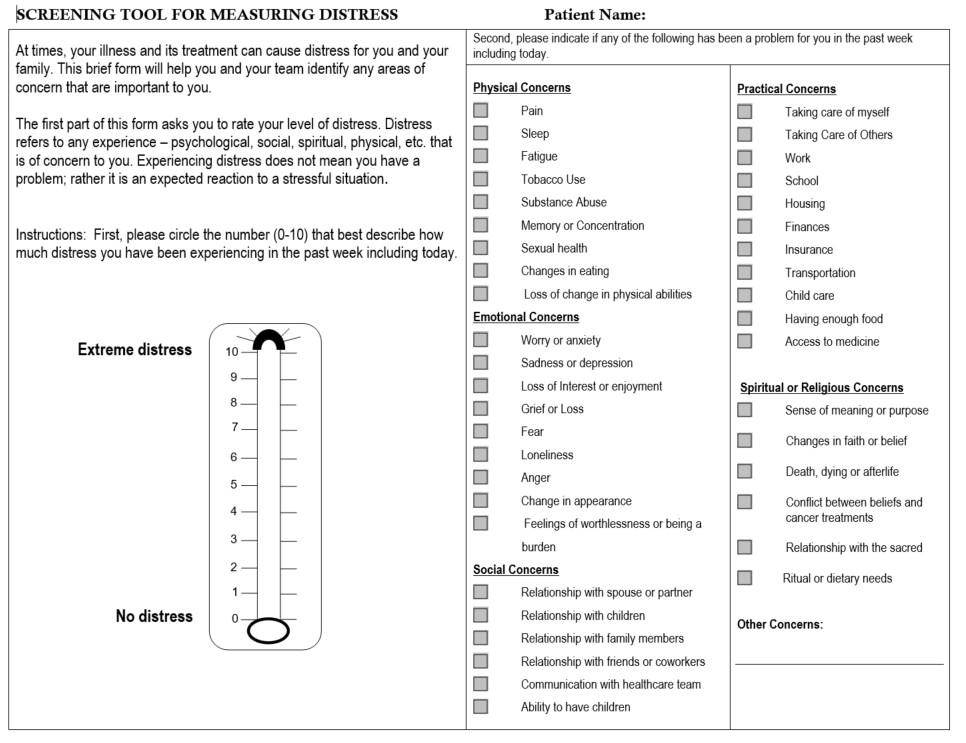The Past, Present, and Future of Distress Screening
Launching a Robust Distress Screening Program at a Large Outpatient Medical Oncology
Practice Serving Rural/Underserved Communities
Stein K, Litterini A, Warren-Vanhorn T, Robbins T, Curtis M, Sanyal A.
Introduction
• The National Comprehensive Care Network (NCCN) defines distress as: “an emotionally unpleasant psychological (cognitive, behavioral, emotional), social, or spiritual experience that may interfere with a patient’s ability to effectively cope with cancer, its symptoms, and its treatment.”



• Poorly managed psychosocial distress results in lower QoL, poor treatment adherence, and worse clinical outcomes.
• Conversely early identification of at-risk patients via screening can avoid mental health crises and can improve outcomes.
• Unfortunately, distress is often not well assessed or addressed, leaving patients to suffer unnecessarily without supportive care.
Methods
1. Past distress screening was limited by single administration of the distress thermometer (DT) at a post-treatment survivorship visit, with a lack of integration with the EHR.

2. After redesign, administration of the DT at initial chemotherapy teaching sessions and robust searchable databases integrated with EHR systems, allowing providers/researchers to create reports filtered by date ranges, encounter type, clinical site/facility, scores of ≥4, domain (physical, emotional, practical), and outcome (referral to specialist).

Results
From Sept. 2022- Jan 2023, 1236 DT’s were administered and analyzed. The largest group presented with mild distress (scores 1-3; n= 411; 33%), followed by 32% with moderate to severe distress (score ≥ 4; n=391). No distress was reported by 31% (n=388).
Discussion
While much work remains, distress screening encounters have doubled at some facilities and referrals to specialists have increased significantly. Future plans include administering the DT “early and often” at periodic clinical encounters to allow tracking of distress over time and triaging referrals by domain to social work, behavioral health, cancer rehabilitation, palliative care, and survivorship care.


